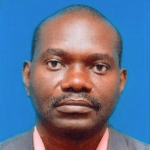| Presented by: Simon Rosser, Ph.D. Professor, Division of Epidemiology and Community Health, UMN and Dickson Ally Mkoka, Ph.D. Dean of Nursing, MUHAS
In the US, only a minority of medical and nursing schools train students using a formal sexual health curriculum. In Sub-Saharan Africa, which has the world’s highest rates of sexual health challenges, such training is rare. To study the effects of such training, we conducted the first Phase III trial of a sexual health curriculum for health students (ever, anywhere). Participants were 412 medical, nursing and midwifery students at Muhimbili University of Health and Allied Sciences in Dar Tanzania who in 2021 were randomized to receive the 4-day comprehensive curriculum (n=206) or to a waitlist control (n=206). The curriculum covered sexual health across the lifespan, male and female sexual dysfunctions, key populations (LGBT; sex workers), sexual violence, clinical skills building, ethics, policy writing, and cultural considerations. Compared to control, intervention participants had statistically significant moderate to large increases in sexual health knowledge, confidence in addressing patients’ concerns, ability to discuss sexual health with patients and demonstrated improved clinical skills in both interpersonal communication and medical history taking. Most participants (76.6%) evaluated the curriculum as culturally appropriate for Africa, personally valuable (96.1%) and would recommend it to a fellow student (98.5%). No adverse effects were observed. This study provides “gold standard” evidence that training in sexual health is culturally acceptable, needed, and effective for medical, nursing, and midwifery students. Given these results, a Phase IV trial is planned to study long-term term effects and to disseminate training to other universities. |

Simon Rosser, Ph.D. Professor, Division of Epidemiology and Community Health, UMN

Dickson Ally Mkoka, Ph.D. Dean of Nursing, MUHAS

